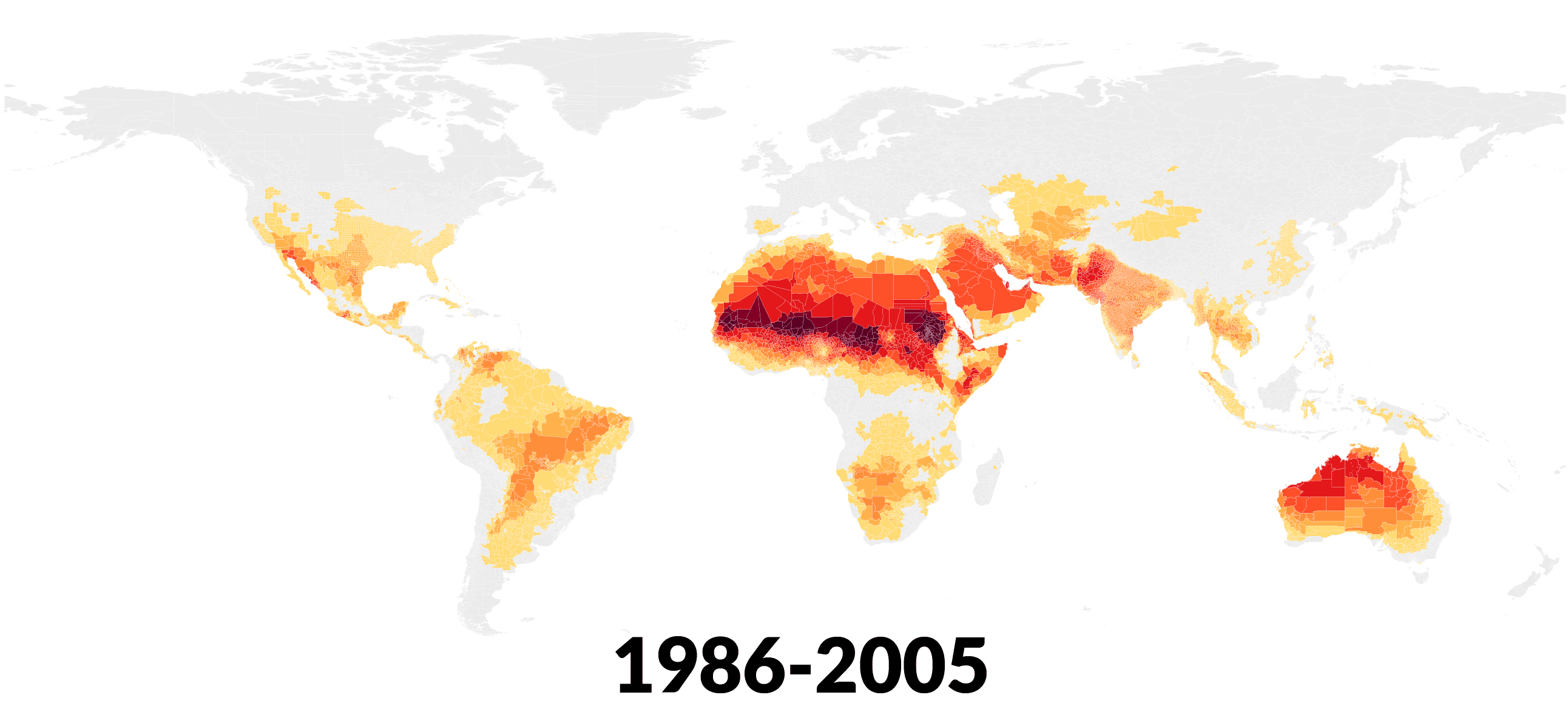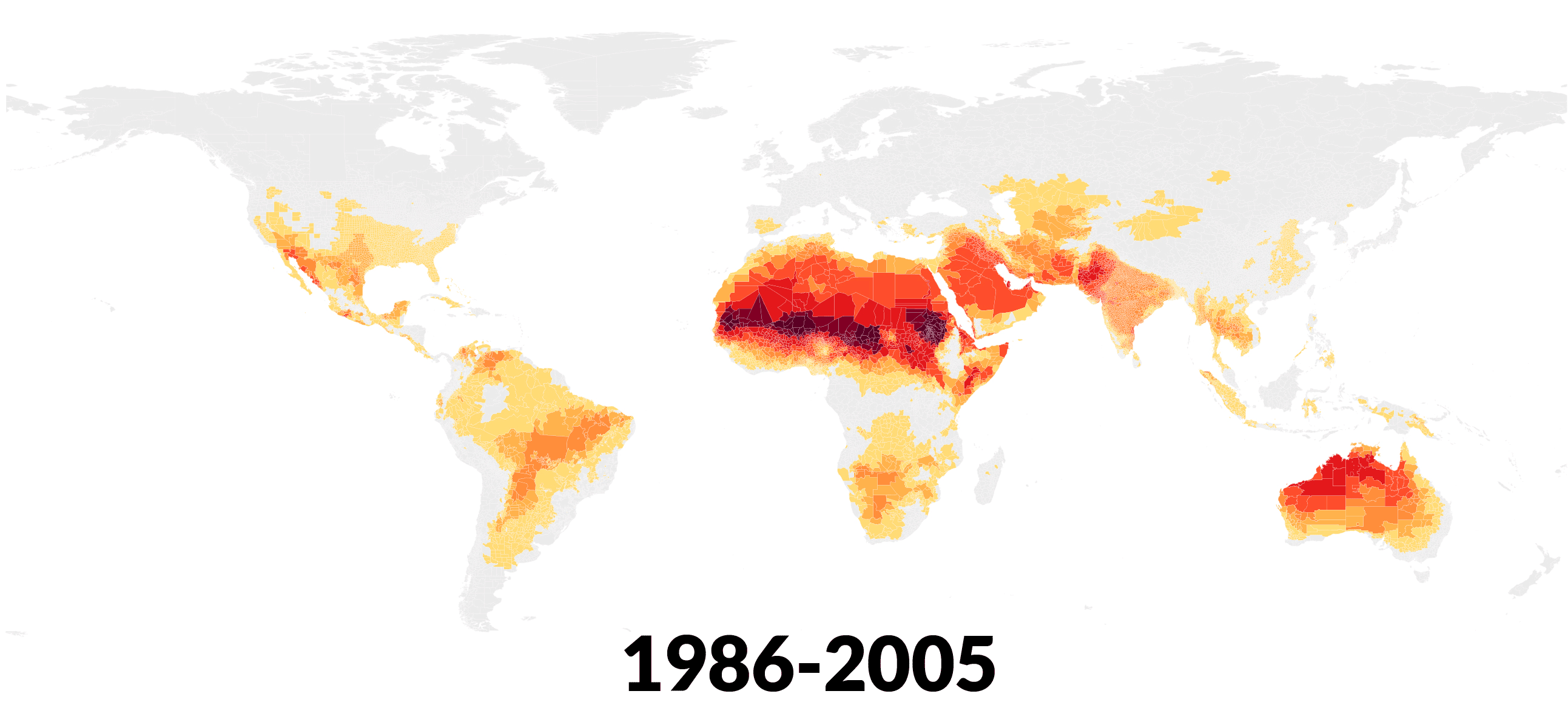These shocking maps show how hot the world is going to get due to climate change
New study finds that days over 35C may become common across the globe.
Global temperatures are set to increase by approximately 4C to 6C before 2100, and hot days could be more common if governments fail to act on climate change. Temperatures of 35°C are likely to increase and spread in many regions of the planet, finds a new study by the Climate Impact Lab, a group of experts from the Universities of California, Berkley and Chicago.
The UK had its hottest June day since 1976, registering at 34.5C (94F) on Wednesday 21 June, following a heatwave that is raising temperatures across Europe. Dangerously high temperatures have been registered in Southwestern US where some cities have been forced to cancel flights for safety reasons.
This all comes against a backdrop of the United States, second only the China as one of the world's worst carbon polluters, pulling out of the Paris Agreement on climate change.
What will happen if countries respect the Paris Agreement?


The map above, created from data by the Climate Impact Lab, shows that days with extreme heat are expected to double by 2100 if countries take moderate climate action. Reduced emissions and policies targeting transportation and industrial production already stated in the Paris Climate Agreement would help to slow down the trajectory of climate change.
However, even current measures would not guarantee better conditions. Cities such as Madrid would see 43 extremely hot days from the current 8. New Delhi, which currently has an average of 105 days with at least 35C temperatures will likely see 200 per year by the end of the century.
What would happen if countries do not take action?
If world leaders do not take further action, or abandon the Paris Climate Agreement – as Donald Trump has recently – severe heatwaves will be more common and spread across all the continents.
As the map below shows, the Sahara Desert area would massively increase, experiencing high temperatures for almost 85% of the whole year. Another worrying area can be seen in the Amazon where temperatures will be over 35°C in more than 90% of the whole forest, including neighbouring countries and the Andes Mountains.


Is the UK taking action?
The UK has put in place the Climate Change Act in 2008, the government's primary plan to reduce gas emissions. The pledge is to reduce emissions by at least 80% by 2050. The UK has, in fact, invested in reducing electricity consumption and in the development of green wind energy, that will sharply increase in the next years.
The overall production of energy from wind will rise to more than 25 gigawatt, allowing the UK to meet its 2050 target and also to cut down domestic emissions.
© Copyright IBTimes 2025. All rights reserved.





















